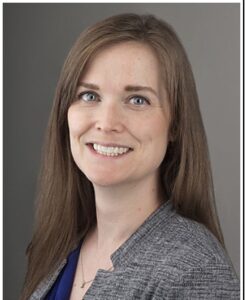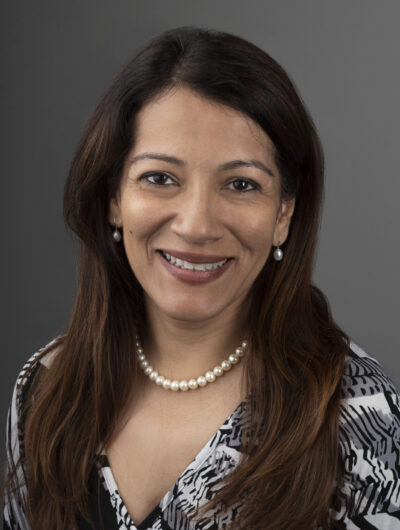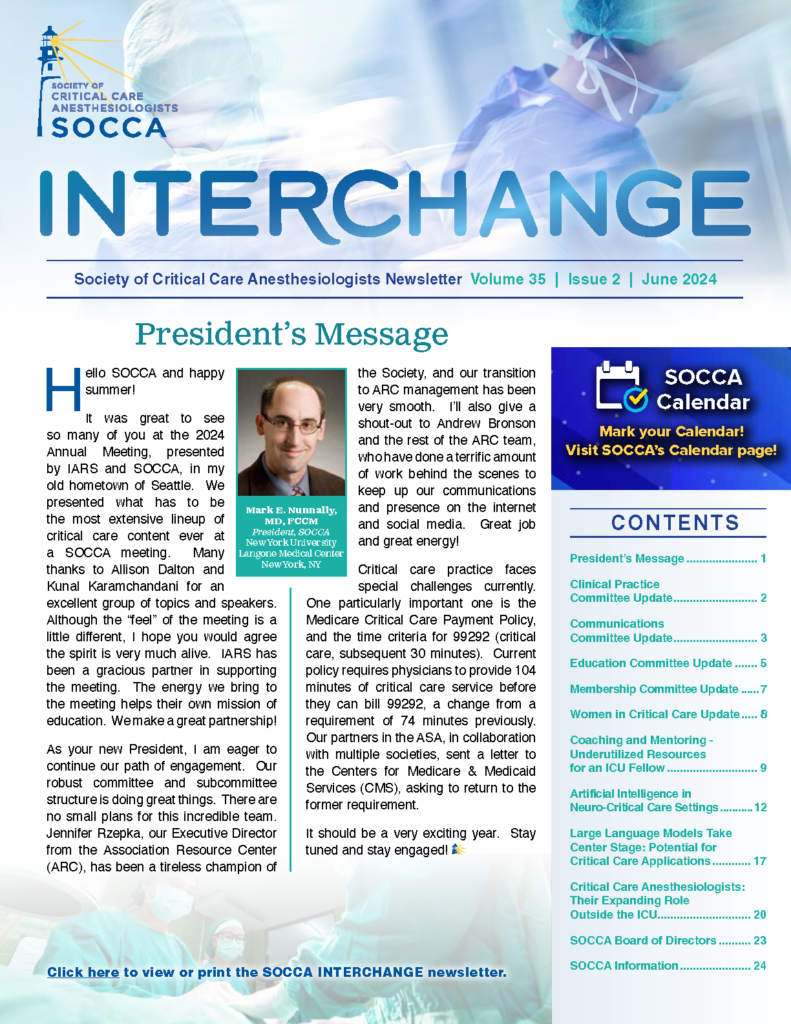A Brief Conversation with… Dr. Jessica Cassavaugh: How to Integrate a Career in Basic Science Research and Critical Care

Jessica M. Cassavaugh, MD, PhD
Beth Israel Deaconess Medical Center
Boston, Massachusetts
Dr. Jessica Cassavaugh is a T32 Research fellow and Clinical Instructor in the Department of Anesthesia, Critical Care, and Pain Medicine at Beth Israel Deaconess Medical Center. She completed her anesthesiology residency and critical care fellowship at the University of Pittsburgh Medical Center. Her current research focuses on estrogen-dependent regulation of inflammatory and hypoxic signaling, especially as it relates to cardiovascular and metabolic diseases.
What is the ideal time allocation for basic science research and clinical duties?
Basic science typically requires multiple, consecutive days as opposed to clinical or database research which are generally more flexible. I think the classic model of 70-80% protected time (usually 3-4 days a week) is needed to be productive. Of course, this can be modeled differently depending on a researcher's specific projects. Working one clinical day in the operating room a week is a simple model to achieve this, however, working a multiple day stretch in an ICU requires more planning and foresight. Having a productive, dependable staff on the research side is also important to keep projects moving while away on clinical duties.
How do you maintain your clinical skills with reduced clinical time?
I recognized early on during my MD/PhD training that I was going to be faced with this challenge, and therefore have made a concerted effort as a trainee and early faculty to develop a wide variety of skills and become proficient at them. I continue to make an ongoing effort to challenge myself by staying involved in major cases (i.e., transplants) and maintaining skills in OR management. I also try to occasionally have solo cases to maintain my proficiency.
Should someone request a starting package with his/her first contract and what that should entail?
I think the request for a start-up package is contingent on bringing independent funding and/or a solid background to the table. Without having a proven track record of research successes—publications, grants, etc.—it is a big ask for departments to invest in a start-up package. Of course, it’s also very difficult for an early investigator to generate enough data to apply for funding. I’ve been very fortunate as I’ve been supported by a T32 anesthesia training grant and very generously by my department. Any start-up package would be specific to the investigator's needs but generally would include space allocations, equipment, and personnel support as well as protected time.
How about subsequent funding? Any maintenance funds or should these come exclusively from grants?
Subsequent funding from departmental support would always be appreciated but is not all too common. The majority of ongoing funding should come from grants and/or perhaps endowed positions.
Do you think there are challenges to starting or having a basic science career as an intensivist?
One of the more frequent challenges for me is the constant transition between responsibilities. And while this is not specific to being an intensivist, as an anesthesia intensivist, many of us wear three hats: OR, ICU, and our research. It can be difficult to change your way of thinking from one day to the next and even more so after several days/weeks in the lab or ICU. I find that I need time to reorient myself to whichever hat I’m wearing on a particular day. Another challenge that I don’t think is truly appreciated is the lack of familiarity between your colleagues and other professional staff. There is a culture of trust that develops between clinical teams who work together frequently. I’ve noticed especially, I believe, as a younger female attending, that building that trust takes extra time and energy and can at times even delay clinical care.
In basic science research, MDs compete with PhDs who don’t spend any time on clinical duties. How do you view this challenge?
I have learned, quite simply, that I cannot compare my path to that of others. A PhD, who is a full-time researcher, can consistently work on and advance their projects. They are more likely to have more dedicated, uninterrupted time to think, read, and write about their ideas and because of this are possibly more competitive for some funding. On the other hand, MDs bring a different point of view to basic science questions and can contribute greatly in that regard. I find that MDs doing basic science research also tend to be excellent at time management and organizational skills, as we frequently are balancing multiple responsibilities and cannot procrastinate deadlines. Fortunately, funding agencies, such as the NIH, also acknowledge that MDs have time limitations and do have specific funding for MDs pursuing basic science research—especially in their early career.
When balancing a basic science and clinical career, do you feel there is a minimum amount of time that should be spent providing clinical care in the ICU to keep your skills sharp?
Yes, but I think that amount of time is difficult to quantify and varies from year to year for me. I expect it’s similar to physicians who had administrative roles and are also not as often on clinical service as their full-time clinical colleagues. I find that case discussions with colleagues, keeping up with literature, and attending relevant talks helps, especially when I have longer stretches of time off clinical service.




































